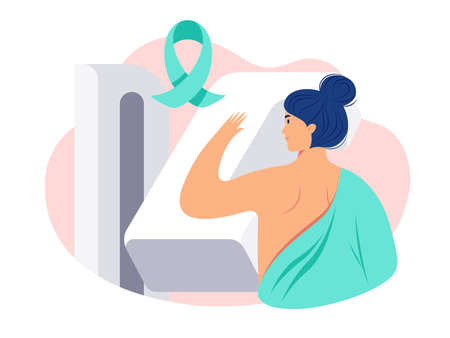Introduction to Breastfeeding in the UK
Breastfeeding plays a significant role in early childhood development, providing vital nutrition and fostering the parent-infant bond. In the UK, breastfeeding rates have long been a topic of public health concern, with national initiatives aiming to promote its benefits and improve uptake. According to recent NHS data, while initiation rates remain relatively high—with around 81% of mothers starting to breastfeed—these numbers drop considerably by six weeks postpartum. The table below highlights key breastfeeding statistics in the UK:
| Stage | Percentage of Mothers Breastfeeding |
|---|---|
| At Birth | 81% |
| At 6 Weeks | 48% |
| At 6 Months | 34% |
Cultural attitudes towards breastfeeding vary across regions and communities. While there is widespread awareness of its health advantages, some mothers encounter societal barriers such as lack of public acceptance or limited workplace support. Public health priorities in the UK reflect an ongoing commitment to improving breastfeeding support, focusing on reducing inequalities and ensuring that all families receive evidence-based guidance and encouragement. This landscape underscores the crucial role that midwives and health visitors play in shaping positive breastfeeding experiences for parents and babies alike.
2. Midwives: Early Support and Advocacy
Midwives play a pivotal role in the UK’s maternity care system, offering crucial support to mothers from the earliest stages of pregnancy through to the postnatal period. Their involvement in breastfeeding begins well before birth, as they provide evidence-based information during antenatal appointments, addressing both the emotional and practical aspects of infant feeding. Through these early conversations, midwives not only normalise breastfeeding but also help parents build confidence and realistic expectations around feeding their baby.
During the antenatal phase, midwives typically discuss the benefits of breastfeeding for both mother and baby, explore any previous experiences or concerns, and demonstrate practical techniques such as positioning and latch using visual aids or dolls. These initial interactions are often tailored to suit each family’s cultural background and personal preferences, ensuring sensitive and effective communication.
After birth, the hands-on guidance provided by midwives becomes even more significant. They offer immediate assistance with the first feed, observing the babys cues and helping mothers establish a comfortable latch. This practical support can make a profound difference in preventing common challenges such as sore nipples or poor milk transfer, which are leading causes of early cessation of breastfeeding.
Stage |
Midwife’s Role |
Key Activities |
|---|---|---|
| Antenatal | Preparation & Education | Discussing benefits; Addressing concerns; Demonstrating techniques |
| Labour & Birth | Immediate Initiation | Encouraging skin-to-skin; Supporting first feed; Observing attachment |
| Postnatal (Hospital/Home) | Ongoing Guidance | Troubleshooting issues; Reassuring & empowering mothers; Monitoring babys feeding cues and weight gain |
This holistic approach means that midwives are not only healthcare professionals but advocates for parent-infant bonding. By fostering open communication and hands-on support throughout the perinatal journey, they create a nurturing environment where families feel empowered to make informed choices about breastfeeding—a foundation that supports long-term physical health and emotional connection for both mother and child.

3. Health Visitors: Ongoing Guidance and Community Engagement
Once families return home from hospital, the role of health visitors becomes central in supporting breastfeeding journeys across the UK. Health visitors, who are registered nurses or midwives with specialist training in public health, provide a vital bridge between clinical care and community life. Their support extends beyond medical advice, nurturing both parental confidence and infant well-being through regular home visits and accessible clinics.
Continuity of Support After Hospital Discharge
Upon discharge, health visitors contact families within the first two weeks to assess feeding progress, answer questions, and offer encouragement. These early encounters are crucial for identifying challenges such as latching difficulties or maternal anxieties. Health visitors also help normalise the emotional ups and downs parents may experience, fostering a sense of trust and openness.
How Health Visitors Encourage Breastfeeding Continuation
| Support Area | Examples of Practice |
|---|---|
| Practical Guidance | Demonstrating positioning techniques, observing feeds, providing tips on expressing milk |
| Emotional Support | Listening empathetically, validating parental feelings, reducing feelings of isolation |
| Problem-Solving | Addressing concerns like sore nipples or slow weight gain, reassuring parents about babys feeding patterns |
Linking Parents to Local Resources
Health visitors act as community connectors by signposting families to local breastfeeding groups, peer supporters, and online resources tailored to the UKs diverse communities. They may recommend drop-in sessions at family hubs or Sure Start centres, ensuring parents feel embedded in a network of care. This holistic approach not only strengthens breastfeeding continuation but also nurtures long-term parent-infant bonds, empowering families during this critical stage of development.
Collaboration with Families: Building Trust and Empowerment
In the UK, midwives and health visitors play a crucial role in supporting families through the breastfeeding journey. Central to their approach is the principle of collaboration, which goes beyond simply providing information. Instead, it involves building genuine partnerships with parents, respecting their unique experiences and perspectives, and empowering them to make informed choices for their babies.
Effective collaboration begins with trust. When midwives and health visitors take time to listen actively to parents’ concerns—whether they are about latch, milk supply, or emotional wellbeing—it communicates respect and validation. This respectful partnership encourages open dialogue, where parents feel safe to express doubts without fear of judgement. In the UK context, this may include acknowledging cultural differences or individual circumstances that shape each family’s feeding experience.
Listening as a Foundation for Support
The act of listening is not passive; it is an active process that helps professionals identify both practical and emotional needs. For example, a new mother might be anxious about feeding in public places like local cafés or parks, common gathering spots across British towns. By hearing these concerns, midwives and health visitors can offer practical tips or reassurance tailored to real-life situations in the UK.
Tailored Support: Promoting Confidence
Individualised support is essential for fostering parental confidence. Rather than offering generic advice, midwives and health visitors adapt their guidance according to each family’s situation. Below is a table illustrating how tailored support might look in practice:
| Scenario | Common Parental Concern | Example of Tailored Support |
|---|---|---|
| First-time parent in London | Nervous about breastfeeding in busy public spaces | Share local breastfeeding-friendly venues and tips for discreet feeding |
| Parent returning to work | Worry about maintaining milk supply | Discuss expressing milk at work and UK workplace rights for breastfeeding mothers |
| Migrant family in Manchester | Unfamiliar with NHS breastfeeding services | Provide translated leaflets and connect with community-specific support groups |
Empowerment Through Partnership
The ultimate goal is empowerment—helping parents feel capable, knowledgeable, and supported throughout their breastfeeding journey. By collaborating respectfully and offering tailored advice, UK midwives and health visitors nurture not only successful feeding but also positive parent-infant relationships built on trust and mutual understanding.
5. Addressing Barriers: Cultural, Practical, and Emotional Challenges
Breastfeeding in the UK is influenced by a variety of cultural, practical, and emotional factors that can pose significant barriers for families. Midwives and health visitors play a vital role in recognising these obstacles and supporting mothers as they navigate them. Understanding these challenges is crucial in providing sensitive, effective support tailored to the needs of each family.
Cultural Attitudes and Societal Expectations
In some UK communities, breastfeeding may not be the cultural norm or might even be viewed with discomfort, particularly in public spaces. Such attitudes can undermine a mothers confidence or willingness to breastfeed outside her home. Midwives and health visitors address these issues by providing evidence-based information about the benefits of breastfeeding and by advocating for normalising breastfeeding within communities. They also signpost mothers to local peer support groups where positive attitudes towards breastfeeding are encouraged.
Practical Challenges: Returning to Work and Public Feeding
Many mothers face the challenge of returning to work while wanting to continue breastfeeding. Practical concerns such as expressing milk at work, finding suitable facilities, or managing feeding schedules can create significant stress. Health professionals offer guidance on:
| Challenge | Support Strategies |
|---|---|
| Lack of workplace facilities | Advising on rights under UK employment law (e.g., breaks for expressing milk) |
| Time management | Helping plan feeding and expressing routines around work hours |
| Public feeding anxiety | Providing information on local breastfeeding-friendly venues and support networks |
Emotional Wellbeing: Confidence and Mental Health
The emotional journey of breastfeeding can involve self-doubt, exhaustion, or feelings of isolation—especially if challenges arise or expectations differ from reality. Midwives and health visitors are trained to recognise signs of postnatal depression or anxiety linked to feeding difficulties. Through empathetic listening, reassurance, and referrals to counselling or mental health services where needed, they provide holistic care that considers both physical and emotional wellbeing.
The Role of Professionals in Navigating Barriers
- Active listening to understand individual circumstances and concerns
- Normalising common struggles and sharing realistic expectations
- Connecting families with local peer supporters and community resources
Summary Table: Common Barriers and Professional Support
| Barrier Type | Description | Professional Response |
|---|---|---|
| Cultural/Societal | Lack of public acceptance, family pressures | Advocacy, education, peer group signposting |
| Practical/Workplace | Difficulties expressing milk at work, time constraints | Legal guidance, routine planning, workplace liaison |
| Emotional/Mental Health | Anxiety, low confidence, postnatal depression risk | Emotional support, referral to specialists, ongoing check-ins |
The holistic approach adopted by UK midwives and health visitors ensures that every family receives not just clinical advice but also compassionate support rooted in an understanding of real-life barriers. This empowers parents to make informed choices that suit their unique circumstances while nurturing strong parent-child bonds.
6. Community and Peer Support Networks
In the UK, community and peer support networks play a vital role in complementing the work of midwives and health visitors when it comes to breastfeeding support. These networks help parents feel less isolated and more empowered on their breastfeeding journey, creating an environment where emotional wellbeing and practical advice go hand in hand. Local breastfeeding groups, often hosted in children’s centres or community halls, provide safe spaces for parents to share their experiences, ask questions, and receive encouragement from both professionals and other mothers who have faced similar challenges.
The Value of Local Breastfeeding Groups
Local breastfeeding groups offer more than just information—they foster a sense of belonging and provide real-time support. Midwives and health visitors frequently recommend these groups to families who may benefit from extra reassurance or whose circumstances require tailored guidance. Attending such groups can boost parental confidence and strengthen the parent-infant bond, which is crucial for healthy psychological development.
Online Resources and Peer Supporters
The digital landscape has expanded access to breastfeeding support across the UK. National organisations like the NHS, La Leche League GB, and the Association of Breastfeeding Mothers offer comprehensive online resources, live chat functions, and virtual peer support groups. These are especially valuable for parents who may not have easy access to local services or prefer the flexibility of online interaction. Peer supporters—trained volunteers with personal breastfeeding experience—play a key role both online and in person, providing empathetic listening, non-judgemental advice, and encouragement that complements professional care.
How Midwives and Health Visitors Connect Families with Support
Midwives and health visitors act as bridges between families and available support networks. During antenatal appointments or postnatal visits, they assess individual needs and signpost parents to appropriate local groups, helplines, or online forums. This proactive approach ensures families receive ongoing guidance beyond clinical appointments, which can be particularly helpful during periods of uncertainty or difficulty.
Types of Support Available
| Support Type | Description | Access Point |
|---|---|---|
| Local Breastfeeding Groups | Face-to-face meetings for shared experiences and expert advice | Children’s centres, community halls |
| Online Resources | Information articles, video tutorials, live chat with experts | NHS websites, national charities |
| Peer Supporters | Trained volunteers offering emotional support and practical tips | In-person at groups or via helplines/online platforms |
This collaborative network ensures that no family feels alone in their breastfeeding journey. By integrating professional expertise with community wisdom, midwives and health visitors nurture both the physical health of infants and the emotional wellbeing of families—an essential foundation for lifelong psychological development.
7. Conclusion: Prioritising Holistic Support for UK Families
As we reflect on the vital role of midwives and health visitors in breastfeeding support, it becomes clear that their work goes far beyond clinical guidance. In the UK, integrated, sensitive support is fundamental to nurturing both parents and infants through the early stages of life. Breastfeeding is not only a nutritional choice but also a cornerstone of emotional bonding and infant psychological development. By prioritising holistic care—addressing physical, emotional, and cultural needs—midwives and health visitors empower families to build confidence, resilience, and healthy relationships.
The Ongoing Importance of Integrated Support
Integrated support means collaboration between professionals, continuity of care, and respect for individual circumstances. This approach enables families to receive consistent advice, timely interventions, and a sense of trust in their local healthcare system. The table below summarises the key elements of holistic breastfeeding support in the UK context:
| Aspect | Description | Impact on Family Wellbeing |
|---|---|---|
| Emotional Sensitivity | Listening with empathy and validating parental concerns | Reduces anxiety; strengthens parent-infant bond |
| Cultural Awareness | Respecting diverse backgrounds and traditions around feeding | Builds trust; increases engagement with support services |
| Practical Guidance | Providing hands-on help with latch, positioning, and problem-solving | Improves breastfeeding outcomes; boosts parental confidence |
| Long-Term Follow-Up | Sustained support through postnatal visits and community networks | Promotes sustained breastfeeding; supports maternal mental health |
Looking Ahead: A Call for Continued Collaboration
The journey of breastfeeding can be challenging yet deeply rewarding. For UK families, knowing that skilled professionals are available—ready to offer not only expertise but also compassion—makes all the difference. As healthcare continues to evolve, prioritising holistic, family-centred support will remain essential. Through collaborative practice and ongoing education, midwives and health visitors will continue to champion the wellbeing of parents and infants across the nation.


